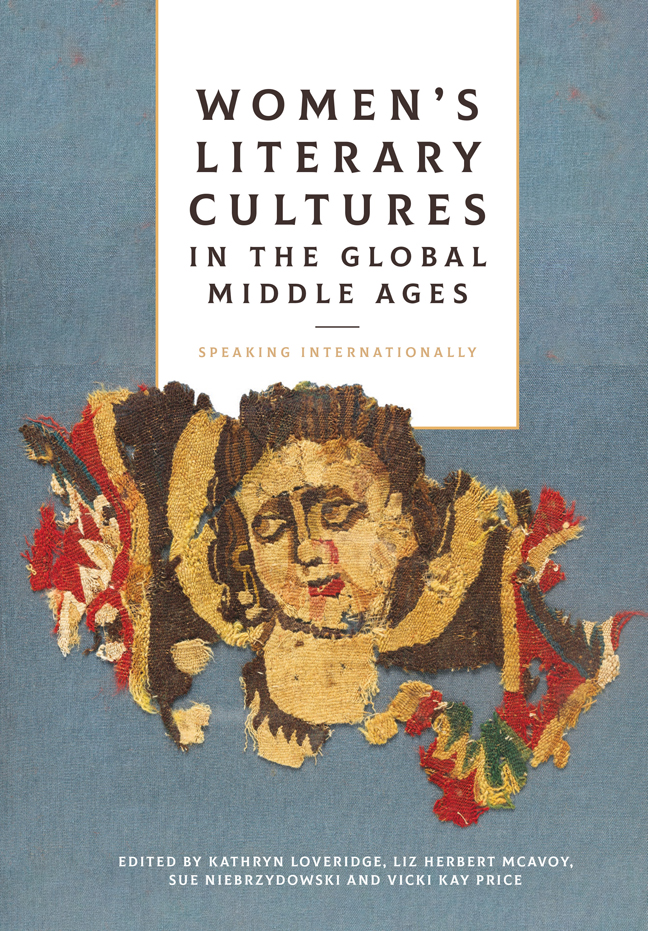Book contents
- Frontmatter
- Contents
- Foreword
- Acknowledgements
- List of Abbreviations
- Book part
- 1 Comparison and Dialogue
- 2 Constructing Gender and Genre
- 3 Saintly Performance and Marian Piety
- 4 Evidence and the Archives: Revisiting and Reconsidering
- Afterword: Intersectionality and Coalitions
- List of Contributors
- Bibliography
- Index
- Gender in the Middle Ages
2 - Women's Mystical Friendships: Margery Kempe and Mirabai
Published online by Cambridge University Press: 09 January 2024
- Frontmatter
- Contents
- Foreword
- Acknowledgements
- List of Abbreviations
- Book part
- 1 Comparison and Dialogue
- 2 Constructing Gender and Genre
- 3 Saintly Performance and Marian Piety
- 4 Evidence and the Archives: Revisiting and Reconsidering
- Afterword: Intersectionality and Coalitions
- List of Contributors
- Bibliography
- Index
- Gender in the Middle Ages
Summary
At the beginning of the twentieth century, scholars posited that there was a single mystical experience. This theory of a common source offered an explanation for similarities observed across religions in the ways that devotees represented intimacy with the divine, such as those discussed by Lazikani in the previous essay. Summing up this view, the philosopher and psychologist William James wrote:
In mystic states we both become one with the Absolute and we become aware of our oneness. This is the everlasting and triumphant mystical tradition, hardly altered by differences of clime or creed. In Hinduism, in Neoplatonism, in Sufism, in Christian mysticism, in Whitmanism, we find the same recurring note, so that there is about mystical utterances an eternal unanimity which ought to make a critic stop and think, and which bring it about that the mystical classics have, as has been said, neither birthday nor native land.
This notion of a common core of mystical experience, known as Perennialism, was adopted by numerous scholars and is the basis of many early and mid-twentieth-century studies of comparative mysticism. By the end of the century, however, this kind of comparativism fell out of favour. Instead, a model, promulgated by Steven T. Katz, emerged, which rejected the notion of an unmediated, universal experience and emphasised the ways in which mysticism is mediated through particular religious cultures. Given this turn in the discourse, one might wonder whether it is still possible to engage in comparative mysticism. Can we forge a dialogue between mystics from different religious traditions without imposition or reduction? What might we gain (if anything) from doing so?
These questions, central also to Lazikani's work, have become important to me as a scholar trained in medieval English literature living and working in India. As I have sought to integrate Islamic and Hindu material, particularly by women, into my medieval literature courses, my students and I have observed that, while diverging in significant ways, women mystics across faiths share common experiences. Through their descriptions of intimacy with the divine, women claimed an authority that was not available to them elsewhere. Describing this phenomenon, Luce Irigaray has called mystical thought ‘the only place in the history of the West in which woman speaks and acts so publicly’. This claim can be extended geographically since women mystics across the world, including in South Asia, also shared this access to a public voice.
- Type
- Chapter
- Information
- Women's Literary Cultures in the Global Middle AgesSpeaking Internationally, pp. 43 - 60Publisher: Boydell & BrewerPrint publication year: 2023



